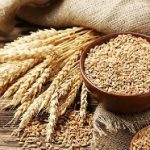The Federal Ministry of Agriculture and Food Security has distributed seeds, fertilizers, and other inputs to 2,000 farmers in Niger State under the National Agricultural Growth Scheme and Agro-Pocket (NAGS-AP).
The distribution, which targeted wheat farmers for the 2024/2025 dry season, took place in Garafini and Swashi communities in Borgu Local Government Area. The initiative aims to enhance Nigeria’s wheat production and reduce reliance on imports.
Mechanized Farming for Wheat Production
According to Mr. Ishaku Buba, the National Project Officer for NAGS-AP, the program covers 2,000 hectares of land across two clusters. Buba, represented by Musaku Emmanuel, noted that mechanized farming methods are being employed to maximize yield and efficiency.
The scheme, in collaboration with SMK Nigeria Limited, provides:
- NPK and Urea fertilizers
- Certified and improved wheat seeds
“This initiative is expected to improve the living conditions of the community and address the shortfall of wheat production in the country,” Buba stated.
AfDB Loan to Boost Wheat and Rice Production
In November 2024, the Ministry of Agriculture and Food Security secured a $134 million loan from the African Development Bank (AfDB) to support the NAGS-AP Project.
Key highlights of the program include:
- 250,000 wheat farmers will receive subsidized inputs to cultivate 250,000 hectares, producing an estimated 750,000 metric tons of wheat.
- 150,000 rice farmers across all 37 states (including the FCT) will be supported under the second phase, with an expected output of 450,000 metric tons of rice.
Speaking during the launch of the 2024/2025 National Dry Season Farming in Calabar, Minister Sen. Abubakar Kyari emphasized that the program aligns with efforts to reduce food imports and bolster domestic production.
What You Should Know
- Wheat Production in Nigeria:
- According to the National Bureau of Statistics, 14 states are key wheat producers, including Kano, Jigawa, Kebbi, Sokoto, and Kaduna.
- Despite these efforts, Nigeria currently does not produce enough wheat to meet demand.
- Duty-Free Import Window:
- Earlier this year, the federal government approved a 150-day duty-free window for the importation of maize, husked brown rice, and wheat to combat food insecurity.
- UN World Food Programme (WFP):
- In September 2024, the WFP distributed wheat to over 68,000 vulnerable households in Katsina State to address food insecurity challenges.
Impact and Outlook
The NAGS-AP initiative, coupled with AfDB funding and strategic partnerships, is expected to significantly boost Nigeria’s grain production, enhance food security, and improve the livelihoods of farmers. By targeting wheat and rice, two staple crops, the government is taking concrete steps to reduce reliance on imports and strengthen domestic agriculture.










